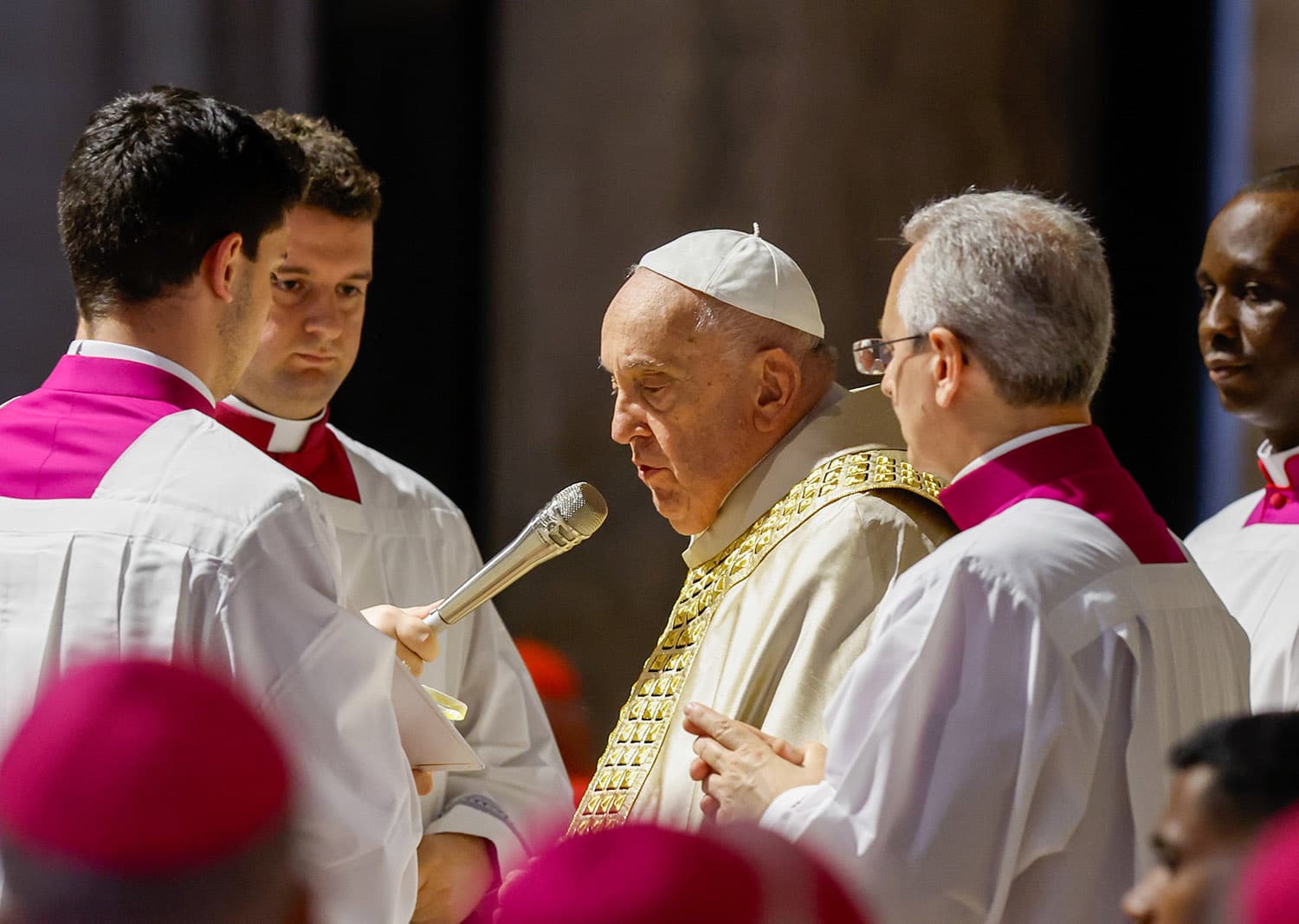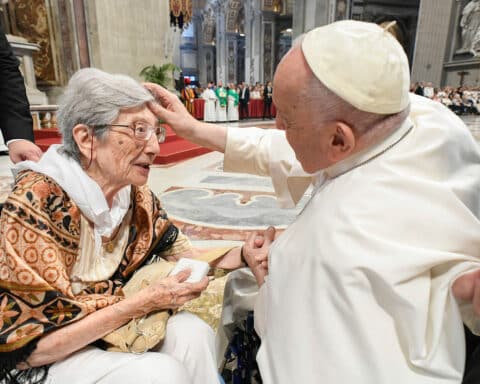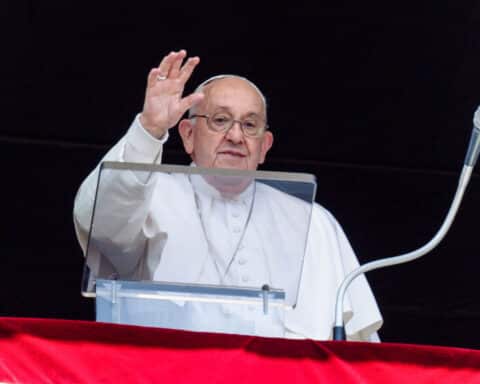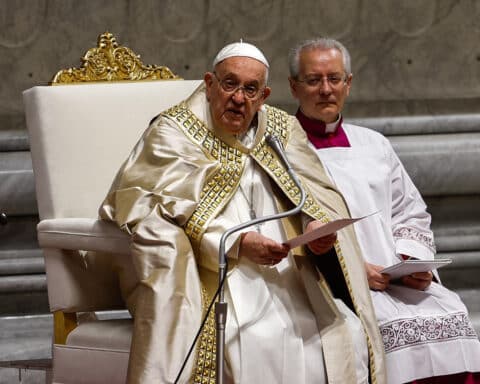VATICAN CITY (CNS) — “The time has come for a new Jubilee when once more the Holy Door will be flung open to invite everyone to an intense experience of the love of God that awakens in hearts the sure hope of salvation in Christ,” Pope Francis said in a document formally proclaiming the Holy Year 2025.
Christians must “abound in hope” to be credible witnesses of God’s love, he wrote, and they can give signs of that hope by having children, welcoming migrants, visiting prisoners, working for peace, opposing the death penalty, helping young people find a job, pressuring rich countries to forgive the debt of poor countries, praying for the souls in purgatory and lobbying to divert money from military spending to food aid.
Proclamation of the Holy Year 2025
The document, called a “bull of indiction,” specifies that the holy year will open at the Vatican Dec. 24 this year and close Jan. 6, 2026, the feast of Epiphany. Pope Francis also asked bishops around the world to inaugurate the holy year in their dioceses Dec. 29 this year and celebrate the conclusion of the jubilee locally Dec. 28, 2025.
During a brief ceremony in front of the Holy Door of St. Peter’s Basilica May 9, Pope Francis handed the document to the archpriests of the papal basilicas of St. Peter, St. Paul Outside the Walls and St. Mary Major, the vicar of the archpriest of the Basilica of St. John Lateran and to top officials of the dicasteries for Evangelization, the Eastern Churches and Bishops.
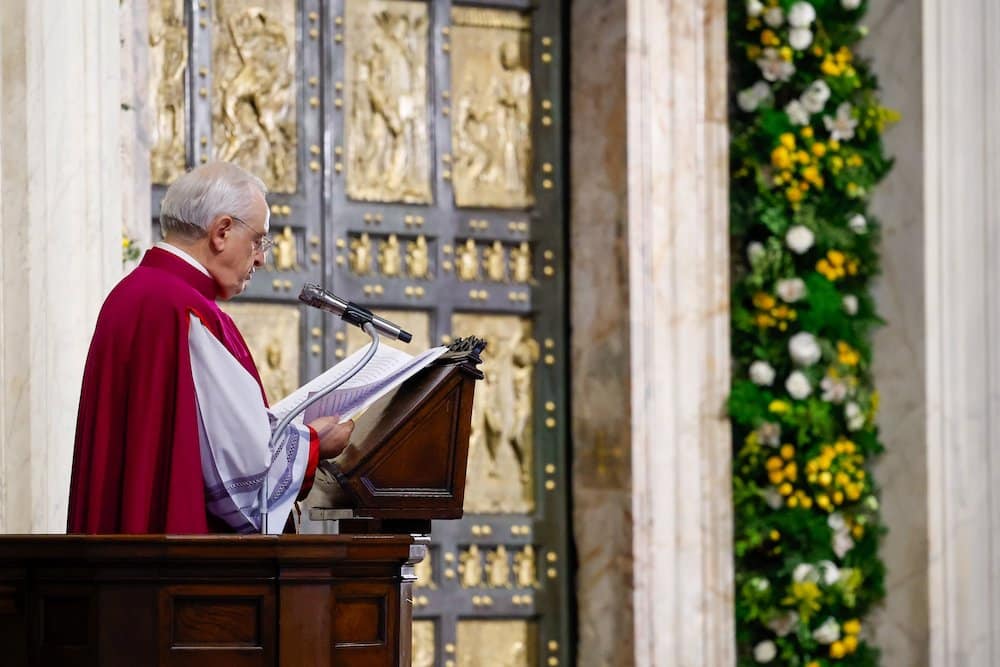
Msgr. Leonardo Sapienza, an apostolic protonotary and official of the papal household, read excerpts from the document, which is titled, “Spes Non Confundit,” (“Hope Does Not Disappoint”).
“Hope is born of love and based on the love springing from the pierced heart of Jesus upon the cross,” Pope Francis wrote in the document.
Signs of hope
In a world seemingly marked by war, divisions, environmental destruction and economic challenges, hope can seem hard to come by, he said. But “Christian hope does not deceive or disappoint because it is grounded in the certainty that nothing and no one may ever separate us from God’s love.”
In addition, people need to look around and seek signs of hope, he said. “We need to recognize the immense goodness present in our world, lest we be tempted to think ourselves overwhelmed by evil and violence.”
People’s yearning for peace, their desire for a relationship with Jesus and growing concern for the environment are all signs that hope still exists, the pope wrote.
“The desire of young people to give birth to new sons and daughters as a sign of the fruitfulness of their love,” he said, is another sign of hope and one that “ensures a future for every society.”
But the “alarming decline in the birthrate” in many countries shows how governments and communities must work together to support young couples who want to give that sign of hope to the world, he said.
‘Pilgrims of Hope’
The theme for the holy year is “Pilgrims of Hope,” and in the document Pope Francis called on Catholics not only to strengthen their own sense of hope, but also to “be tangible signs of hope for those of our brothers and sisters who experience hardships of any kind.”
Listing prisoners as the first category of people in need of hope, the pope said he wants to open a Holy Door in a prison although he provided no further details. But he asked governments around the world to consider jubilee amnesty and pardon programs and urged greater efforts to ensure those who have completed a sentence are assisted in their return to society.
Focus on prisoners, young people and migrants
He called on all Catholics, but especially bishops, to “be one in demanding dignified conditions for those in prison, respect for their human rights and above all the abolition of the death penalty, a provision at odds with Christian faith and one that eliminates all hope of forgiveness and rehabilitation.”
Pope Francis also called on the church to take special care of young people, who are supposed to be “the embodiment of hope,” but often seem overwhelmed by “an uncertain and unpromising future.”
And migrants, who leave their homelands in search of a better life for themselves and their families, also need support to keep their hope alive, he said, adding that “their expectations must not be frustrated by prejudice and rejection.”
Indulgences and prayers for souls
Pilgrims of hope also should help the souls in purgatory, the pope wrote as he introduced a discussion on a key feature of jubilee celebrations: indulgences, which the church describes as a remission of the temporal punishment a person is due for their sins.
“Every sin ‘leaves its mark'” even after a person has received forgiveness and absolution through the sacrament of reconciliation, he said. “Sin has consequences, not only outwardly in the effects of the wrong we do, but also inwardly, inasmuch as ‘every sin, even venial, entails an unhealthy attachment to creatures, which must be purified either here on earth, or after death, in the state called Purgatory,'” he wrote, quoting the Catechism of the Catholic Church.
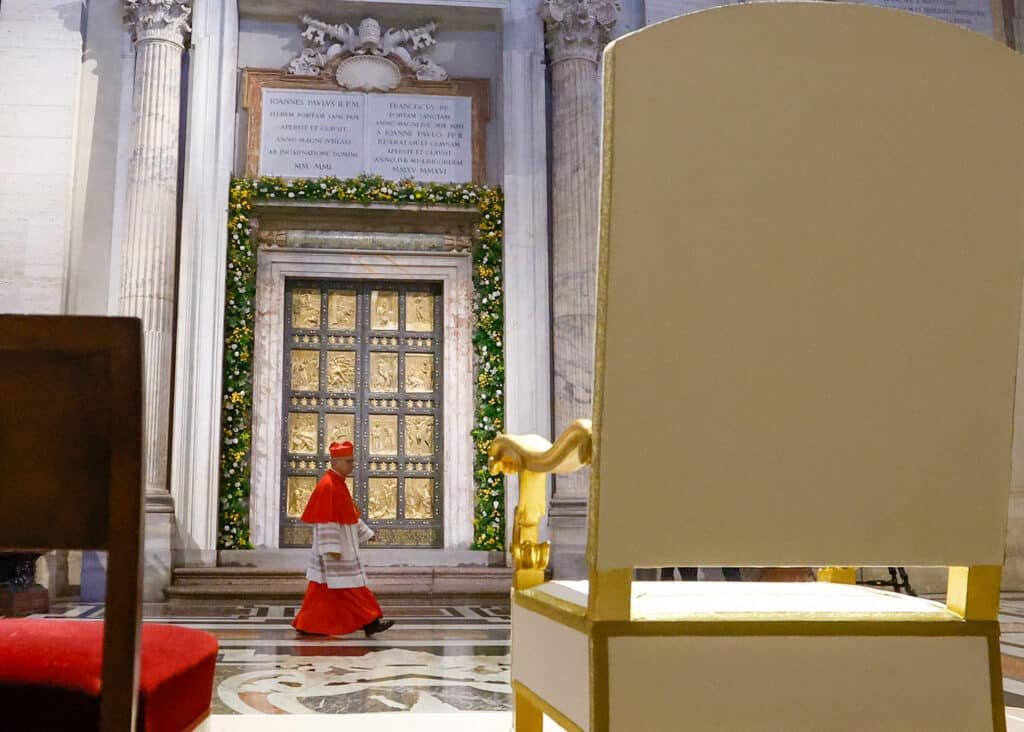
“The evil we have done cannot remain hidden; it needs to be purified in order to enable this definitive encounter with God’s love,” the pope said. “Here we begin to see the need of our prayers for all those who have ended their earthly pilgrimage, our solidarity in an intercession that is effective by virtue of the communion of the saints, and the shared bond that makes us one in Christ, the firstborn of all creation.”
“The Jubilee indulgence, thanks to the power of prayer, is intended in a particular way for those who have gone before us, so that they may obtain full mercy,” Pope Francis wrote. He said a full set of norms for the jubilee indulgence would be published later.

